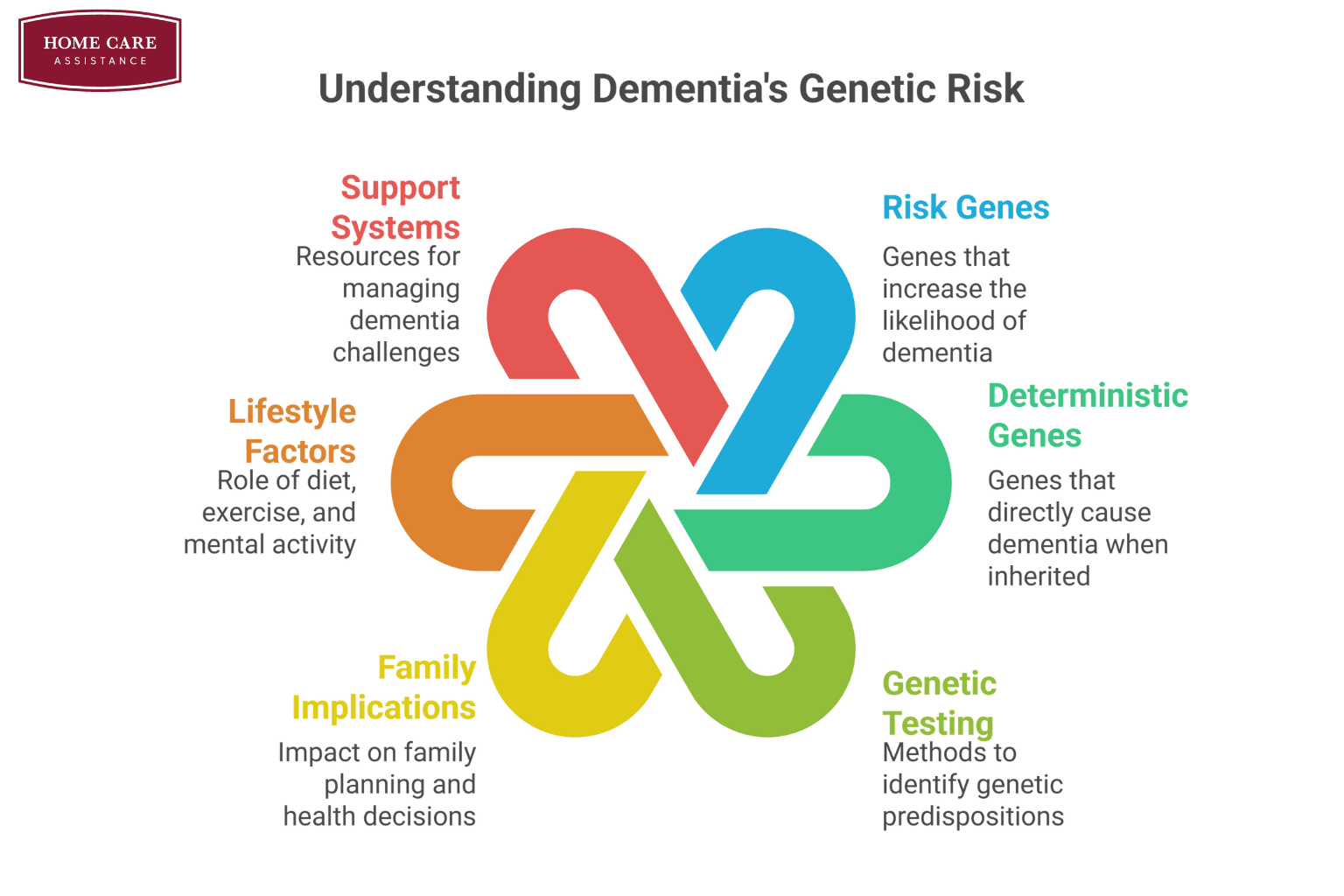
Table of Content
The Role of Genetics in Dementia
Genetics plays a complex role in the development of dementia, accounting for certain cases while others are attributed to environmental and lifestyle factors. Dementia-related conditions such as Alzheimer’s disease often have both genetic and nongenetic causes. Two key genetic variations play a role in this context:- Risk genes – These increase the likelihood of developing dementia but don’t guarantee it. For instance, the APOE-e4 gene is linked to a higher risk of Alzheimer’s.
- Deterministic genes – These are rare but directly cause dementia when inherited. Conditions such as familial Alzheimer’s disease, caused by mutations in the APP, PSEN1, or PSEN2 genes, fall under this category.

What Genetic Testing Reveals
Genetic testing is becoming increasingly accessible, offering insights into a person’s likelihood of developing dementia. While not a definitive diagnosis, testing can determine whether someone carries risk or deterministic genes associated with conditions like Alzheimer’s. If you’re considering genetic testing, here’s what it typically reveals:- Presence of risk genes – Identifies if you have a genetic predisposition, such as the APOE-e4 allele
- Mutations in deterministic genes – Explains early-onset familial dementia cases
- Family patterns – Uncovers inherited conditions and determines whether other family members might be at risk
Implications for Families
Learning about a genetic connection to dementia can be a double-edged sword for families. On one hand, it allows for timely planning and preventative measures, while on the other, it can create anxiety about potential future diagnoses. Key implications include:- Early detection and intervention – Families can work closely with healthcare providers to detect early signs of dementia and manage symptoms effectively.
- Lifestyle modifications – Genetic risk doesn’t mean inevitability. Adopting brain-healthy habits—such as regular exercise, a nutritious diet, and cognitive stimulation—can delay or even prevent onset.
- Family planning – For those with deterministic genes, understanding the heritability factor may influence decisions around children and extended family members.
The Environmental and Lifestyle Intersection
Genes are only one piece of the puzzle. Many individuals with risk-related genetic markers never develop dementia, highlighting the significant role of lifestyle and environmental factors. Studies suggest lifestyle changes can outweigh genetic predispositions in many cases:- Diet – A Mediterranean or DASH diet rich in whole grains, fruits, and healthy fats is linked to better brain health.
- Mental activity – Activities such as reading, solving puzzles, and learning new skills may build cognitive reserve and reduce risk.
- Physical exercise – Regular aerobic exercise boosts blood flow to the brain and has been shown to slow cognitive decline.
The Role of Support Systems for Families
Facing dementia in the family calls for robust support systems to manage the emotional, financial, and medical challenges. Whether navigating genetic testing or caring for a loved one, having the right resources matters.- Support groups – Organizations such as the Alzheimer’s Association provide guidance and community networks for families.
- Counseling services – Genetic counselors and therapists can help families cope with the potential stress of learning about genetic risks.
- Long-term planning – Legal and medical planning ensures families are prepared for future care needs.